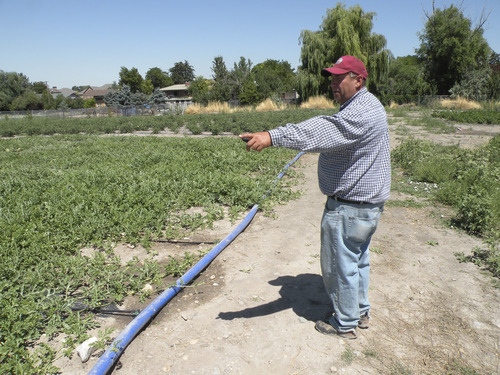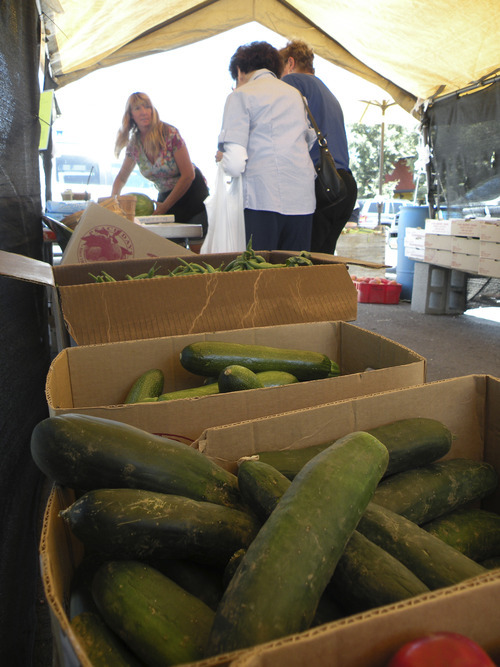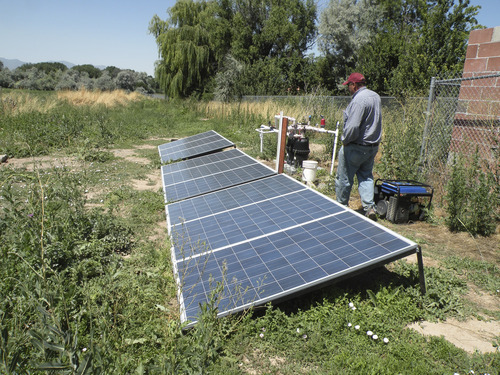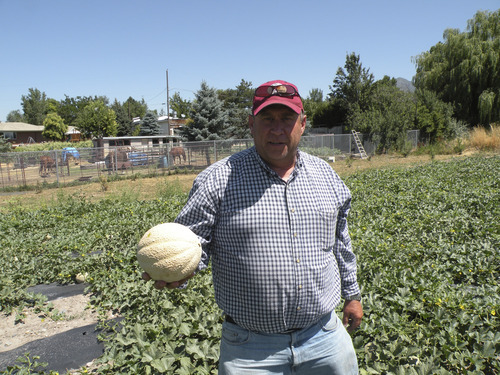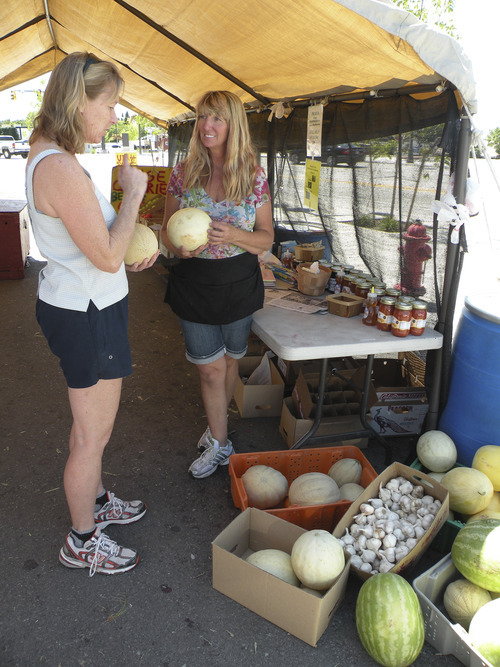This is an archived article that was published on sltrib.com in 2011, and information in the article may be outdated. It is provided only for personal research purposes and may not be reprinted.
Where thistles and bindweed once tangled in a dusty heap, watermelon plants sprawl over irrigated rows. Green tomatoes turn golden as their season approaches, and the smell of fresh basil wafts on the breeze.
Thayne Tagge's three-acre farm behind the Holladay Lions Recreation Center, 1661 Murray-Holladay Road, is part of a Salt Lake County experiment in local food. The county last year leased three parcels of land to be used for urban farming, and Tagge's first crop is of the bumper variety.
"Somebody told me, 'You know, they used to grow good melons around Holladay a long time ago,' " Tagge said. "We've done about 20,000 pounds of cantaloupe right here."
Tagge, a Holladay resident, also farms a large orchard near Willard. He started the new field at the Rec Center to keep part of his operation closer to his home and to his market. He hires teenagers from his neighborhood to harvest the crops and sells them at a fruit stand at 4657 S. 2300 East, just one mile away.
"How local is 'local food?' " Tagge asked. "You can't get more local than that."
At the fruit stand, customer Laurie Maggard learned that the field that produced her cantaloupe is so nearby that she recognized it from her dog-walking route.
"This came from right over there?" Maggard asked the saleswoman.
That's the goal of the farming leases, said Julie Peck-Dabling, director of Salt Lake County's urban farming program. The three parcels — one in Holladay and two in Draper — were originally bought for future parks land, but funding shortages left them undeveloped.
"It actually takes staff time to go out there a few times a year and cut the weeds and spray them," Peck-Dabling said. Until the space is converted to parks, leasing the land to local farmers is more productive, she said.
"You shorten the distance between the farm gate and the dinner plate," Peck-Dabling said. "The food is fresher, it tastes better and it's more nutritious when it's just been picked."
Farmers who lease the land are required to sell locally — at fruit stands, through community-supported agriculture (CSA) membership distributions or at farmers' markets.
Tagge's fruits and vegetables are sold at the Holladay stand, at the South Valley Unitarian Church in Cottonwood Heights, through the Tagge's Famous Fruit CSA and at several other locations along the Wasatch Front.


